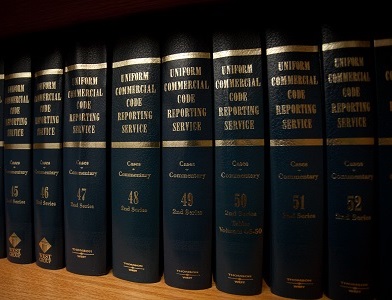On June 19, 2014, the Supreme Court of Kentucky rendered its unanimous opinion in favor of Commonwealth Bank & Trust Company in Mark D. Dean, P.S.C. v. Commonwealth Bank & Trust Company. In considering an issue of first impression, the Kentucky Supreme Court held that the Uniform Commercial Code is intended to occupy the field to the exclusion of common law claims in the areas in which it provides comprehensive rights and remedies, such as the check fraud loss provisions of Articles 3 and 4.
Morgan & Pottinger attorneys John McGarvey, Eric Jensen and Brad Salyer represented Commonwealth Bank & Trust Company. Read Louisville Business First coverage here: What impact could a Kentucky Supreme Court decision have on your checking account?
Mark D. Dean, P.S.C. is a sole practitioner law firm in Shelbyville, Kentucky. The firm maintained an escrow account at Commonwealth, and Dean and his bookkeeper were authorized signatories on the account, having signed a signature card requiring one signature for any transaction on the account. Beginning in 2003, the bookkeeper began embezzling funds from the account by kiting checks between Commonwealth Bank and another local bank. In all, she embezzled over $800,000 from the law firm. Each month, Commonwealth sent a detailed statement containing all account activity to the address listed on the signature card.
The trial court granted Commonwealth summary judgment on the basis that the UCC claim was barred by the statute of limitations, and that the plaintiff had failed to identify any facts to support its common law claims. The Court of Appeals affirmed the trial court, but on different grounds. The Court of Appeals held that the bookkeeper’s signatures on the checks were “unauthorized signatures” within the meaning of section 4-406 of the UCC, as she had exceeded her authority to act on behalf of the firm. The Court of Appeals concluded that the one-year bar to timely examine bank statements and bring unauthorized signatures to the bank’s attention barred all of the firm’s claims.
The Supreme Court of Kentucky affirmed the summary judgment, but on different grounds than the trial court or the Court of Appeals. The Supreme Court determined that 4-406 of the UCC was not applicable as the bookkeeper was authorized to sign checks by virtue of the signature card. The Court pointed out that Kentucky banks cannot be placed in the position of having to police what an authorized signatory is doing when writing perfectly valid checks on an existing account.
Instead, the Supreme Court determined – as the trial court had and as argued by M&P – that the firm’s UCC claim was barred by the three-year statute of limitations, which began running when the monthly bank statements were provided to the account holder. Reasonable diligence would have revealed the losses, and the account holder was in a unique position to best determine whether suspicious activity had occurred by timely reviewing his bank statements. The fact that the bookkeeper diverted the monthly bank statements did not relieve him of this duty.
Significantly, the Supreme Court also determined that the firm’s common-law causes of action were barred, as they were displaced by the comprehensive UCC provisions governing check fraud loss in Articles 3 and 4. The Court held that determining whether the UCC has displaced other principles of law and equity must be decided on a case-by-case basis, and that the “proper balance tends to favor application of the UCC and displacement of other law.”
Learn more about the Uniform Commercial Code attorneys at Morgan & Pottinger, P.S.C. Since the UCC was adopted in Kentucky, our attorneys have overseen the process through which the UCC has been updated and revised. John McGarvey, one of our shareholders, serves on the American Bar Association’s UCC Committee and has chaired the Kentucky UCC drafting committee. If your institution has questions about the UCC or this case, please contact John McGarvey, Eric Jensen or Brad Salyer at Morgan & Pottinger, P.S.C.
Read the Supreme Court of Kentucky opinion here.



